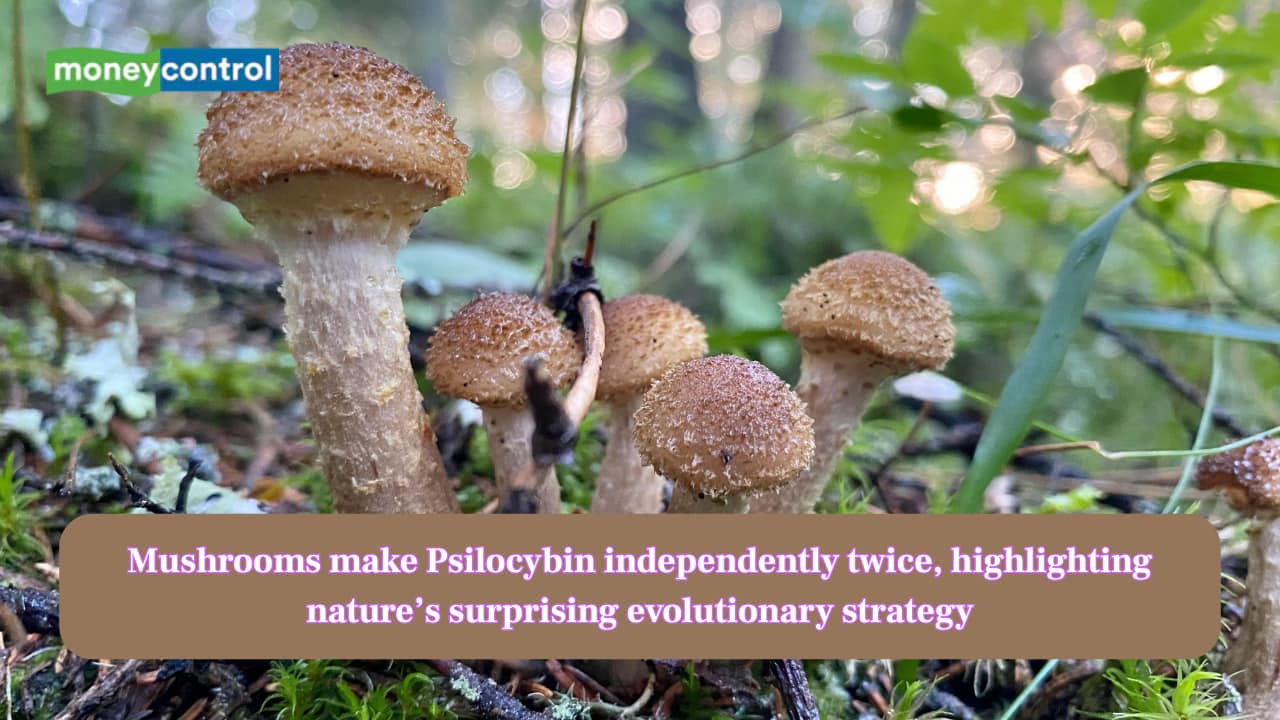Science
Scientists Discover Independent Evolution of Psilocybin in Mushrooms

Researchers from Germany have unveiled a remarkable instance of convergent evolution in fungi, revealing that various types of mushrooms have independently developed the ability to synthesize psilocybin, a well-known psychoactive compound. The study, led by Professor Dirk Hoffmeister and his team at the Leibniz Institute for Natural Product Research and Infection Biology and Friedrich Schiller University Jena, focused on the enzymatic pathways that enable this unique chemical production.
The investigation centered on fungal species from the genera Psilocybe and fiber cap mushrooms. Conducted in laboratories located in Jena and Innsbruck, the research pinpointed the distinct biochemical processes employed by these fungi to generate psilocybin. Findings from this study were published in the esteemed journal Angewandte Chemie International Edition on September 21, 2025.
Understanding the Evolution of Psilocybin
The study highlights that the evolution of psilocybin production occurred independently at least twice within these fungi. Despite the different species utilizing various enzymatic pathways, both the fiber cap mushrooms and Psilocybe species successfully produce psilocybin. This showcases nature’s capacity for diverse mechanisms leading to similar outcomes, a key aspect of convergent evolution.
Fiber cap mushrooms rely on a distinct set of biochemical tools compared to the Psilocybe species, which employ a more familiar set of enzymes for psilocybin synthesis. The ability of these unrelated fungi to synthesize the same compound demonstrates nature’s ingenuity in developing similar traits through different evolutionary paths.
The Ecological Role and Future Research
While the precise evolutionary advantages of psilocybin production remain unclear, researchers speculate that these mushrooms may serve as a chemical deterrent against predators. The study indicates that understanding these mechanisms could pave the way for advancements in the biotechnological production of psilocybin, as well as further exploration of its ecological role.
Future research will delve deeper into the biochemical processes behind psilocybin synthesis and its potential implications for both ecological systems and medical applications. This groundbreaking work not only illuminates the complexities of fungal evolution but also opens avenues for innovative biotechnological developments.
-

 World4 months ago
World4 months agoSBI Announces QIP Floor Price at ₹811.05 Per Share
-

 Lifestyle4 months ago
Lifestyle4 months agoCept Unveils ₹3.1 Crore Urban Mobility Plan for Sustainable Growth
-

 Science3 months ago
Science3 months agoNew Blood Group Discovered in South Indian Woman at Rotary Centre
-

 World4 months ago
World4 months agoTorrential Rains Cause Flash Flooding in New York and New Jersey
-

 Sports3 months ago
Sports3 months agoBroad Advocates for Bowling Change Ahead of Final Test Against India
-

 Top Stories4 months ago
Top Stories4 months agoKonkani Cultural Organisation to Host Pearl Jubilee in Abu Dhabi
-

 Science4 months ago
Science4 months agoNothing Headphone 1 Review: A Bold Contender in Audio Design
-

 Top Stories4 months ago
Top Stories4 months agoAir India Crash Investigation Highlights Boeing Fuel Switch Concerns
-

 Sports3 months ago
Sports3 months agoCristian Totti Retires at 19: Pressure of Fame Takes Toll
-

 Business4 months ago
Business4 months agoIndian Stock Market Rebounds: Sensex and Nifty Rise After Four-Day Decline
-

 Politics4 months ago
Politics4 months agoAbandoned Doberman Finds New Home After Journey to Prague
-

 Top Stories4 months ago
Top Stories4 months agoPatna Bank Manager Abhishek Varun Found Dead in Well









